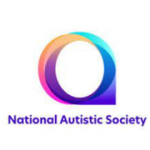Negative Effects
Despite the value of screens, there is a rising concern about the negative effects of too much screen time, with research indicating that large amounts of screen time can be detrimental to a person’s health, in the following ways:
- Contributing to development delay – particularly language development.
- Causing an increase in behaviours that challenge. For example, a person might be influenced by violent content they have seen and then act in antisocial, risky, or unsafe ways.
- Increasing the likelihood of a person being influenced by extreme views.
- Reducing the ability to read facial cues.
- Causing sleep disturbances.
- Reducing a person’s ability to learn healthy self-regulation skills.
- Increasing the risk of making unhealthy food choices in response to advertising and more likely to develop obesity as a physical exercise decreases.
- Becoming addicted to spending time on screens.
Due to multiple and complicated factors, autistic people may be more prone than most to find themselves struggling with some of the above – and at a greater risk of experiencing the negative effects of screen time.
This can be increased further by the fact that many autistic people value more alone time than other people, meaning much of their screen time occurs in isolation.. In addition, parents or carers may find it hard to be sure how much screen time is taking place, what sorts of games or content the autistic person might be accessing and whether the people they are communicating with are safe or not.
Positive Effects
Many autistic people value online communication as the least anxiety provoking means of social communication. Engaging with people online can give them a greater sense of control in social situations. It takes away the pressure that is often felt in face-to-face situations – for example, reducing the worry of having to interpret facial expression or body language. It also gives autistic people time to process information and plan what they want to say and when they want to say it. It is a way they can practise their social communication in a way that often feels safer and more comfortable and helps them to build their social confidence.
Social media and online gaming platforms also provide opportunities for autistic people to connect with other like-minded people – such as people who share the same interests, including other autistic people. These sorts of connections can help autistic people to see autism as a positive part of their identity, build self-esteem and feel part of a community.
Online activities can also be an effective visual learning tool. This can be especially helpful for autistic children who might feel too anxious to attend school. An online learning environment can feel safer and much less anxiety provoking than a busy classroom, for autistic children in this situation. Similarly, autistic adults may find that online working is a way to overcome the challenges of the usual work environment, where it might be anxiety provoking to engage in social exchanges with colleagues or difficult to tolerate sensory stressors – such as bright lights or noisy chatter. The use of apps can be used to support with executive function and be a tool to manage day-to-day tasks and get things done.
What can you do?
Think carefully about when and how often to use a digital device to regulate.
Autistic people are prone to emotional dysregulation, heightened stress responses, and can be more likely to be over or under stimulated. High exposure to screens over-stimulates the nervous system, which increases stress, induces over arousal, causes emotional dysregulation, and can create? overstimulation therefore increasing the risk of screen addiction.
Remind yourself that whilst screen time might appear at first to help with self-regulation, there is the risk that in fact too much screen time might lead to emotional dysregulation.
So, if possible, avoid using screen time as the usual go-to method to calm down. Instead, find other, healthier ways to self-regulate – such as safe stimming (click here to view article on stimming), physical activity or spending time on hobbies or interests.
Note though, navigating screen use time is not always straightforward. For some autistic people, their digital devices are the most comforting of items – and to withhold these at times of stress would be a restrictive practice that could be damaging to their feelings of safety. It is important to work with the autistic person to help them understand and weigh up the risks and benefits of using a screen at any point in time. Wherever safety permits, it is important that the autistic person has autonomy on decisions around this.
Screen time
With a lack of clear guidance, it can be difficult to put boundaries in place on screen time use. So, it is helpful to regularly remind yourself that daily use of screen time can lead to any of the detrimental factors in the bullet-pointed list above – and that ultimately too much screen time can lead to poorer mental and physical health.
Try to break up long sessions of screen time by taking part in outdoor activities, walks, non-screen related games, and crafts – and as a rule, avoid having meals in front of screens. There may be exceptions to this rule if a person has difficulties with eating and drinking, causing health difficulties and which can be reduced when eating in front of a screen. Similarity there may be some instances where using a screen at a table might help an autistic person feel more comfortable in a social situation – for example in a busy restaurant or when they are in a group of people they do not know well.
Screen-free time together with others
Autistic people often have social and communication challenges. Extensive time spent on screens may limit opportunities for face-to-face interactions with others. This may then make it more difficult for a person to build effective social interaction skills and confidence.
Try to make time for interaction with others without the distraction of screens. Encourage phones to be put away during conversations with others so that all people in the conversation can give and receive full and undivided attention. This can be at set times like meals times if this is difficult to implement. There may be times where exceptions are made – such as when a screen might be beneficial as a comfort item.
Sleep hygiene
Autistic people are more likely to have lower levels of melatonin and decreased REM (rapid eye movement) sleep. Screen time interrupts sleep and impacts the brain’s in- built body clock. The blue light from screens and electronic devices mimics daytime and suppresses the body’s supply of melatonin and REM sleep. REM is the restful, restorative phase of sleep – often described as the most important.
Try to limit screen time use 1 hour before planning to sleep. Before going to sleep, turn off vibrating and audio notifications to help avoid sleep disturbance.
Pause points
The internet is a place where you can find all sorts of useful information. However, it is also full of misinformation (something that is completely incorrect). There is also content designed to change how you think or act, including disinformation (something deliberately designed to deceive).
Sometimes, the influence of what you see online can be positive – such as an emotional advert for a charity that makes you want to donate money or something that grabs your attention related to your interests.
Getting sucked into hours of watching funny animal reels on Instagram might make you struggle to get to sleep or lead to a grumpy mood. However, this is harmless by comparison to other more serious online influences, like falling for email scams or going to darker places on the internet where you could encounter trouble.
Autistic people can be prone to taking information at face value, often struggling to read between the lines or to pick up subtle clues, making them particularly vulnerable to influence from information, views and opinions shared by others – including those that are inaccurate, harmful or unsafe. Autistic people might not easily realise when this has happened – and it might then be hard to convince them that this is the case.
That’s why it’s important to build in ‘pause points’ ’, where you regularly stop and ask: What is this content trying to influence me to think, feel or do? And if you are a parent or carer for an autistic person, it is important to find a way to model and encourage this.
Stay active
Autistic people tend to participate in less physical activities outside of the home. This is probably due to a variety of factors such as reduced motor skills, social communication differences, social anxiety – and a lack of autism-friendly opportunities for physical activity in our communities.
This likely contributes to more screen time. Have a look at Autism friendly places to visit in Leicester (Click here to view the article) and our Support Services Page (Click here to view the page) for easy and fun ways to tempt you away from screens.
In summary
Online activities and content such as video games, social media, web-browsers, and forums can be valuable assets for autistic people. They have opened a new world of potential, in terms of making friends, being part of the autistic community, giving learning and employment opportunities.
For so many of the population, autistic people included, their digital devices can be an essential tool for navigating everyday life and enhancing health and wellbeing.
However, there are many risks associated with spending time on devices with screens. This includes potential negative effects on mental and physical health – such as risks to safety and contributing to sleep and mood difficulties.
Always remember that each autistic person will have their own unique strengths, likes, dislikes and vulnerabilities. Prioritise investigating and weighing up all the potential risks and benefits for every individual person. Consider carefully how any amount and type of screen time might affect their health and wellbeing, either positively or negatively – and take steps to try and best ensure that screen time is as positive and as safe as possible.



